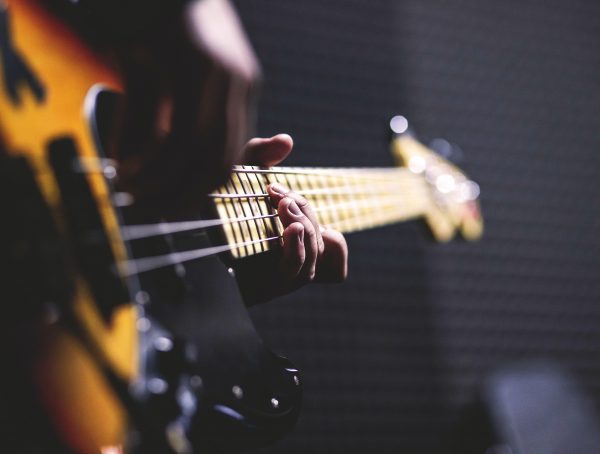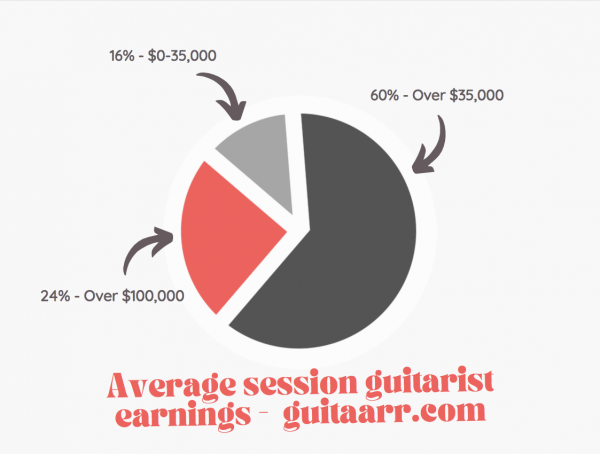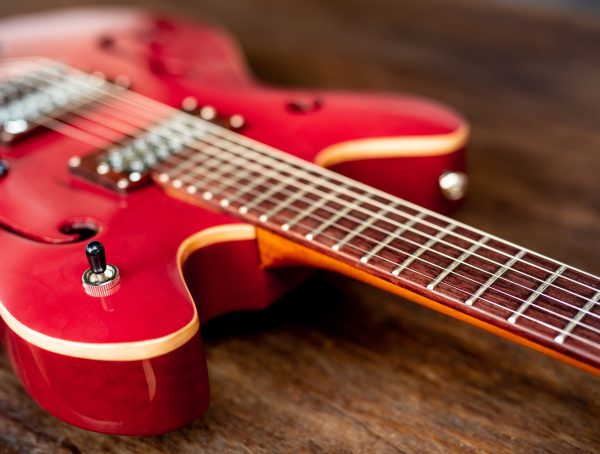The guitar is easily one of the most popular starter instruments, which also means that the majority of people you meet have at least tried to play the guitar at some point in their life. It’s also incredibly common for people to either want a guitar or be gifted one, only to give it up after a short period of time.
What I want to address today is the reasons why this happens, and to hopefully inspire you out of a guitar playing rut that you could be stuck in if you’re finding the learning process too difficult.
Is the guitar actually hard to play?
I’m asked this question a lot, and the answer I give is always intentionally vague. Well, the answer is yes and no. With regular practice, you can pick the basics up quite quickly. But learning to play the guitar is a lifelong journey, so it’s not something that ever becomes ‘easy’ or ‘completed’ as there are always new techniques and pieces of music to learn.
The 5 most common reasons beginners find the guitar hard to play
I put the question out to the social media profiles associated with this site, as I wanted input from the guitarist community on this one. Also, a lot of these points resonate with me personally too, and they’re certainly things I’ve experienced in my music career. Let’s have a look.
1. Unrealistic Expectations
As the old saying goes, there’s no use trying to run before you can walk. And, when you’re a beginner, it’s all too easy to want to replicate the guitar playing you see in the media or from your favorite bands. After all, that’s probably the reason you wanted to learn how to play to begin with (I know I did).
The point I want to make here is that, like with anything in life, the best results come from long-term goal setting and being willing to delay gratification to the point that you actually get technically proficient with the guitar. If you’re going to take anything away from this post, then I hope it is this… Nothing worth having comes easily, as this is especially true for the time it takes for you to site down and get your guitar technique nailed. Once you’re proficient, you won’t even be thinking about having to take the time to stretch your fingers into odd positions, or get frustrated with things like fret buzz.
Obviously, there are advanced techniques for playing fast and that sort of stuff, but with regards to learning the basics you can easily become proficient within 6 months from keeping up with a regular playing schedule.
2. Boring Guitar Lessons
I could rant about this all day. As a guitar teacher myself, I know the pain that many students go through when they’re just given a sheet of tablature and told to come back next week knowing how to play twinkle twinkle little star. Huge red flags aside from the lazy teacher in this scenario, but my point stands. If you’re not learning the types of music or songs that interest you, then chances are you’re not going to stick at it.
Now, it’s obviously crucial that any beginner learns the basics such as simple chords and scales. But, the vast majority of songs already incorporate these, so it’s more on your guitar teacher (or an app like Fender Play) to find the types of genres and music that will allow you to retain interest in the guitar.
For example, learning a Jimi Hendrix song will be both challenging and interesting for many players. Many of Jimi’s songs incorporate basic chord progressions and pentatonic scale, which most teachers worth their salt would be needing to show you anyway!
3. Finger Pain
This point is quite rare, but it’s certainly one I’ve heard from ex players. Finger pain when learning how to play the guitar, especially for those of us with a low pain threshold, can be a very real barrier to progression.
Unfortunately, aside from creating some sort of reinforced skin, you’re going to have to build up your calluses if you’re going to want to play the guitar. It’s just a simple fact of playing. What you can do is minimise the pain by not trying to push through it when the pain occurs. Take regular breaks and listen to your body, as you don’t want to make things worse in the short term.
Your calluses will form, so keep at it, but at the same time don’t push through any major pain for the sake of building a callus any quicker (this isn’t the way to do it either).
4. The Wrong Guitar
How many beginners do you see with a classical guitar? Most, right? And how many of them are actually wanting to learn classical music? Probably not a lot of them.
Many beginners will get their first guitar cheap, which is what I always recommend as you simply may not like to play the guitar, therefore there is no use in paying a lot fo money upfront for something you won’t use. Having said that, if you have the budget, you at least going to want to get the style of guitar that will reflect the type of music you want to play.
For most guitarists, this means that they’re usually better opting for an electric guitar starter kit, rather than a nylon string classical guitar just because it is a little cheaper. Why? Because the electric guitar offers so much more for beginners, and also gives the opportunity to experiment with things like amplifiers, tone, and even simple effects. For curios beginners, this unlocks a whole world of playing possibilities.
Also if you’re coming to this post stuck for ideas you can check out our guide to the best guitars for beginners for some inspiration.
5. No Time To Practice
You’re simply not going to get proficient or ‘good’ at anything if you don’t take the time to practice. Having said that, we all live very busy lives and it’s easy to let new hobbies slip in terms of the amount of effort you put into it. For beginners, consistency is key. This also comes back to my point on choosing the right type of music to learn as a beginner guitarist.
If you can take even ten minutes a day to practice a song you actually like compared to ten minutes a week practicing boring scales, then naturally you’re still going to be making progress and be enjoying the playing along the way. You’ll also be strengthening your fingers, and working on your technique at the same time.
Little and often when it comes to playing is much better than trying to cram at the end of a long week. Your brain needs time to adapt to the new movements too, therefore by sticking to a daily practice schedule you’re going to see everything slot into place much quicker.
Conclusion
I really hope this guide has both inspired you to stick to learning the guitar, and get you out of a rut if you happen to be in one. Stay tuned for more posts like this along with reviews and honest guides for guitarists along the way. Happy shredding!
If you found this article helpful you’ll also enjoy:
More from Frequently Asked Questions
Can you play guitar with acrylic or long nails?
The short answer is yes, you can absolutely play the guitar if you have long nails, acrylic nails, fake nails... …
How Much Do Session Guitarists Earn? (2021 Poll Data)
There has been an argument for years now that the era of the session guitarist is long-gone. With nearly every …
How to protect your guitar from damage and theft
While your first guitar is unlikely to be worth more than a couple of hundred dollars, as you progress as …










